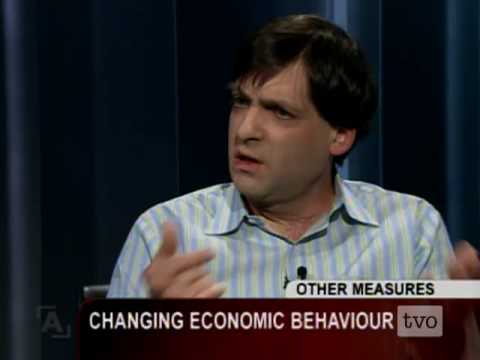I thought this letter would be good to share but could not decide where to place it. I decided that this would be as good a place as any as it deals with our hardwired nature to inflate etc…
An open letter to Harry Reid from Addison Wiggins
January 7, 2011
The Honorable Harry Reid
Majority Leader
United States Senate
Washington, DC 20510
Dear Mr. Leader,
I’m writing in response to Treasury Secretary Timothy Geithner’s appeal to you to raise the debt ceiling.
I understand that you didn’t ask for my opinion. And with no political positions on my curriculum vitae, you may not even recognize my name. But I have co-authored two books warning about the United States’ fiscal situation, starting with Financial Reckoning Day in 2003 and followed by Empire of Debt in 2005. I mailed copies of the latter to you and the other members of Congress free of charge. While it may not be sitting on your nightstand, I trust that you’re at least aware of the book.
After we published the book, I wrote and produced a documentary, I.O.U.S.A., which was screened in competition at the Sundance Film Festival, nominated for a Critics Choice award and shortlisted for an Academy Award. The film attempts to present the fiscal crisis facing the United States in a way that the average American could understand. The film took two years to produce and premiered on Aug. 22, 2008 - almost a month before Lehman Bros. declared bankruptcy, kicking off the Panic of '08.
So after a decade of attempting to bring the root causes of our economic woes to light, I humbly suggest that the shortsighted tone of Mr. Geithner’s appeal is itself part of the problem. It is, in fact, no different than Secretary of Treasury Hank Paulson’s frantic three-page proposal that kicked off the bailouts in September 2008.
Sir, in short, by raising the debt ceiling, we’re delaying the day of reckoning yet again. Instead of paying for our excessive spending today, we’ll pass that burden on to our children and grandchildren. I have three young children. And I, like many Americans, already find it a challenge to educate them and provide for their health care. Now I must also worry about what their future is going to look like…what opportunities will they find when it’s their turn to join the work force or start businesses?
Mr. Geithner shares his fears of a default in his letter to you. But his request simply means my children - everyone’s children - will have to deal with that default on their own.
Do we really want our children burdened by higher taxes, excessive government regulation, higher mortgage rates, reduced incentives to start their own businesses and, as things are going, the end of the freedoms that you, Mr. Geithner, the rest of the American public and I cherish?
Freedom is the very promise that America bestows on history. But now, through our own malfeasance, we are in a position of telling the world, “We cannot afford to offer you the opportunity to enjoy that freedom anymore.”
How did it come to this? And why perpetuate the very malfeasance that threatens our future prosperity?
For most of America, understanding the fiscal condition of the nation is no easy task. For that, they place their trust in you. No doubt, it’s easier to do exactly what our Treasury secretary is asking you to do - ignore the problem and continue to kick the can down the road. But I’m asking you, on behalf of future generations, to think deeper about the problem and begin addressing it today.
To help you with your decision, here are some images you can use to illustrate the magnitude of the national burden.
As Mr. Geithner stated in his letter to you, “In February of 2010, Congress passed legislation to increase the debt limit to $14.29 trillion.” To grasp that staggering figure, imagine stacking $100 bills on top of one another. To reach $14.29 trillion, your stack would soar 9,721 miles into the sky!
Said a different way, that’s like 1,767 mountains of $100 bills the size of Mount Everest piled on top of each other.
Of course, the current debt wouldn’t be a problem if tax revenue were exceeding our spending and therefore reducing the debt. But we both know that is not happening. Even if we taxed all Americans 100% of their income for an entire year, we still wouldn’t be able to pay off our $14.29 trillion hole
What’s more, the interest we’re paying on the current debt is forcing us deeper and deeper into the hole. According to the TreasuryDirect.gov website, the interest payment on our debt was a massive $1.13 billion per day - for a total of $413 billion - in 2010.
The interest payment alone amounts to record-breaking deficits hit during the Bush administration just a few short years ago. If you agree to raise the ceiling, you effectively agree to drive up the interest payments until they exceed tax revenue - creating a situation in which we’ll be forced to default, eventually. And the longer it takes to happen, the worse it will be for our children.
The Treasury secretary outlines how catastrophic a default would be for the financial system and the integrity of the United States:
Default would effectively impose a significant and long-lasting tax on all Americans and all American businesses and could lead to the loss of millions of American jobs.
When, I ask you, do we begin addressing the root problem? When do we admit that we’re spending beyond our means and begin to address the problem in earnest? “We can live beyond our means for a very long time,” to paraphrase a leading financier from I.O.U.S.A., “and we can do it on a very large scale - but we cannot do it forever.”
The United States is like a private company suffering from a pension burden it did not plan for and that is losing market share because its products are no longer competitive. And it is as if the management has decided to take an extended vacation, rather than hold a meeting to find a way out of the hole.
In Congress, you don’t address the real problems. You talk around them, play politics with them and then make frantic appeals at the 11th hour to borrow more money to paper over the problems again for yet another year.
At this pace, how do you honestly believe the government will ever balance its books again? In the era of uncertainty created by mayhem in Washington and ever-increasing global competition, how do you expect the economy to get back on track?
Let’s put the numbers aside for a second. I’d like to ask you a simple question:
Imagine for a moment that you’ve chosen to smoke cigarettes all your life. You’ve ignored the warnings about them that appear all around you. Then, eventually, and unfortunately, you get diagnosed with lung cancer.
Luckily, you’ve caught the disease in its very early stages. The doctor presents you with two choices.
First, you can enter chemotherapy. The road to recovery, the doctor tells you, will be harsh. You’ll suffer extreme nausea. You’ll hardly be able to swallow from the ulcers you develop in your mouth. In short, you’ll go through hell in an attempt to beat the disease. But because you caught the disease after the first symptoms appeared, you have a high chance at a full recovery.
The doctor also offers a second alternative. He’s worked out a deal that allows you to rid yourself of the disease instantly. No pain. No suffering. No hell. All you have to do is agree to give the disease to your 2-year-old grandson.
Would you make that deal, Mr. Leader?
I trust you’ll make the right decision about our nation’s fiscal health. At the very least, there needs to be an honest debate over raising the debt ceiling. If you provide the rubber stamp Mr. Geithner is asking for, you will be as guilty as he of passing the buck. Each time the buck gets passed, the stakes get higher. The default Mr. Geithner fears only looms more ominous in our future.
The newly elected speaker of the House, John Boehner, has gone on record saying he’ll agree to increase the debt limit because we have to be “adults” about addressing the fiscal crisis the nation faces.
What, may I ask, is “adult” about failing to address this issue altogether?
Sincerely,
Addison Wiggin
Executive publisher, Agora Financial
Co-author, Financial Reckoning Day and Empire of Debt
Executive producer, writer, I.O.U.S.A.
cc: The Honorable John A. Boehner, Speaker of the House
The Honorable Nancy Pelosi, House Minority Leader
The Honorable Mitch McConnell, Senate Minority Leader
The Honorable Dave Camp, Chairman, House Committee on Ways and Means
The Honorable Sander M. Levin, Ranking Member, House Committee on Ways and Means
The Honorable Max Baucus, Chairman, Senate Committee on Finance
The Honorable Orrin Hatch, Ranking Member, Senate Committee on Finance
All Other Members of the 112th Congress


